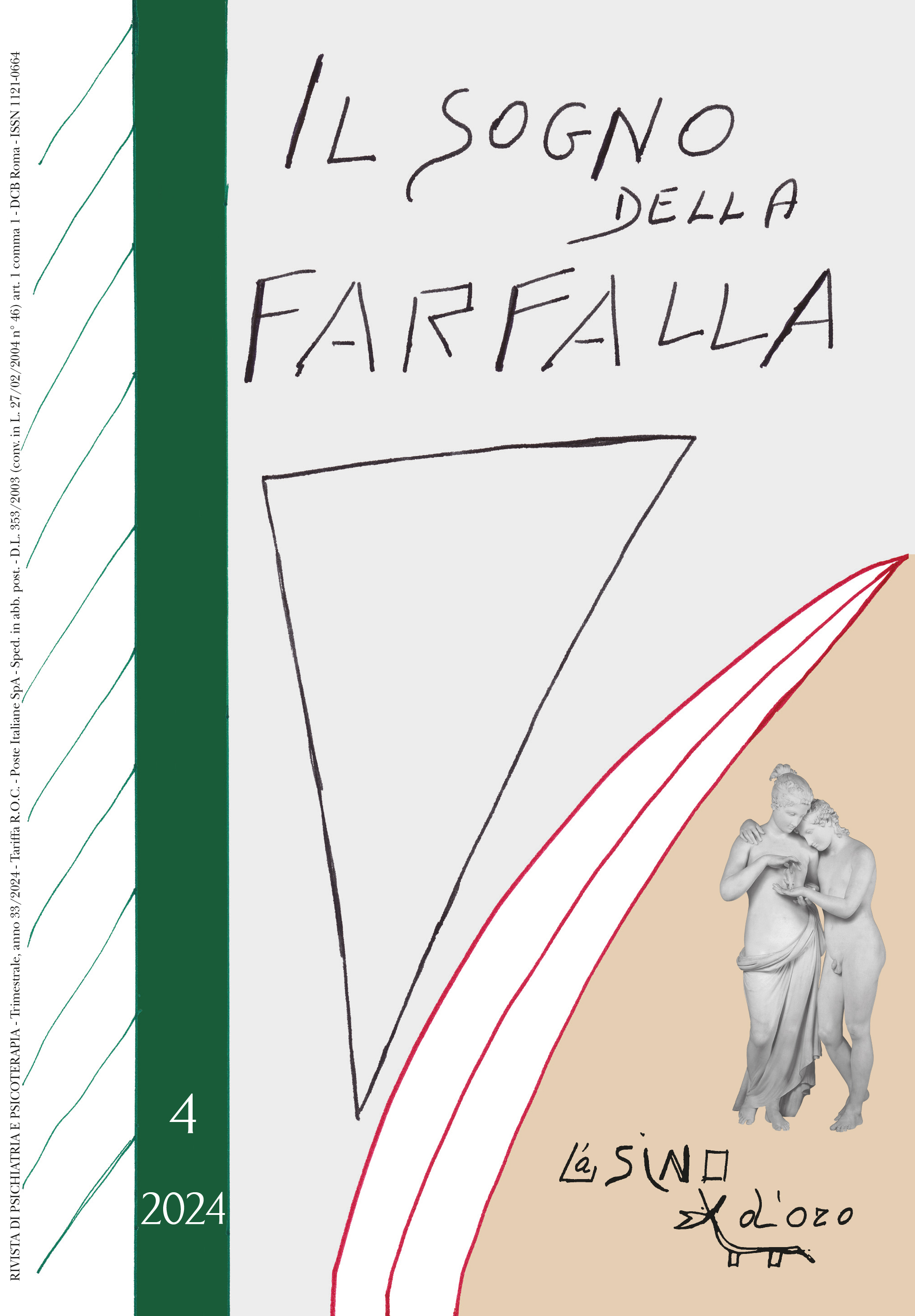La lingua dell’interpretazione dei sogni. Percorsi nella linguistica storica a partire da Istinto di morte e conoscenza
DOI:
https://doi.org/10.14663/sdf.v33i4.926Parole chiave:
language question, Giovanni Semerano, Dante, Greek logos, monotheism, Mesopotamian cultures, GilgamešAbstract
In 1972, by adopting a completely new language in the volume Death instinct and knowledge, Massimo Fagioli presented his Human Birth Theory, which defines the biological
origin of mental reality through the reaction of the brain substance to the light stimulus on the retina, and its development during the first year of life in the inter-human relationship. Closely connected with the development of his theory, the author postulated the possibility of curing the human mind, if it becomes ill, through the interpretation of dreams. Fagioli’s theoretical research and consequent therapeutic praxis, based on the transition from the universal language of images to the verbal one, prompts a confrontation with our millenary linguistic history, in its various temporal and even geographical declinations. In more than forty years of Collective Analysis, starting with the age-old question of the origin of the Italian language, research had extended to Latin and Greek philology, and even further back, it had gone as far as confronting the languages of peoples from the Near East, where agriculture, urban civilization and writing were invented. Sumerians, Assyrians, Babylonians first, but also Hittites, Phoenicians, Canaanites, Hebrews. Lands where, well before the Greek logos and the Bible, the Sumerian epic of Gilgameš, king of Uruk, was born. This epic transmitted in cuneiform characters on clay tablets for a millennium and a half throughout the Near East, is the origin of celebrated themes such as the universal flood and the journey to the underworld, which have been passed on to the Mediterranean peoples and European literature, reaching the present day.


